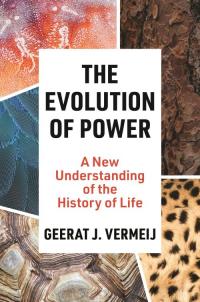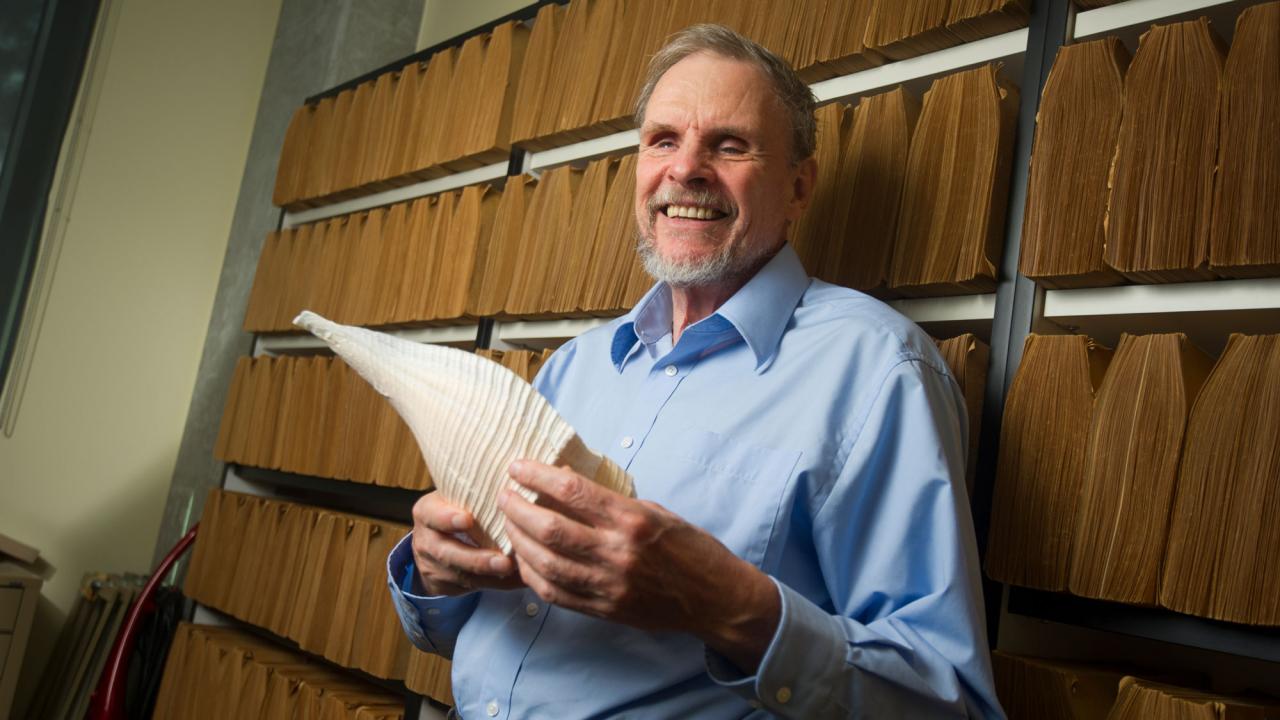Geerat Vermeij wasn’t sure he had another book in him. The 77-year-old paleobiologist and Distinguished Professor Emeritus of Earth and Planetary Sciences already had six books and hundreds of academic publications to his name. But Vermeij, if anything, is a constant student and writing, for him, is still one of the best ways to learn.
“I thoroughly enjoy writing, which is a godsend if you’re going to be a productive scientist,” said Vermeij, who is set to publish his seventh book “The Evolution of Power: A New Understanding of the History of Life” on Nov. 14. “As I wrote the book, I learned a lot and that’s always been true for me as I write and read. I just learn a tremendous amount, and I understand things better at the end than I did at the beginning.”

For decades, Vermeij has forged an illustrious career in the sciences by studying the intricacies of seashell fossils from hundreds of millions of years ago. He’s received numerous accolades for his work, most recently including membership status in both the American Academy of Arts and Sciences and the National Academy of Sciences.
The findings he’s gleaned from his meticulous study of extinct creatures have yielded broader insights about evolution, humanity, biology, economics and now, the role of power. Vermeij’s new book extrapolates on the idea that “the history of life on Earth can be meaningfully and informatively interpreted as a history of power” with the human species representing the current apex. Vermeij defines power as “energy taken up or spent per unit of time.”
“There is relentless selection in favor of increasing power because it gives an organism immediate competitive advantages,” Vermeij said. “Humans fit into this scheme perfectly. We are without any question the most powerful species, both collectively and individually, that has ever lived on Earth.”
According to Vermeij, what makes humans unique is that we’ve established a monopoly on the planet. Much of that has to do with our ultrasociality — our ability to control our environment and establish societies with characteristics like division of labor and agriculture.
Perhaps, he said, nothing exemplifies our species’ heavy hold on Earth more than the designation of our current era as the Anthropocene — a geological age defined by human control over the climate and environment.
“We are using energy sources, everything from fossil fuels to nuclear fuels,” Vermeij said. “Even energy sources like wind are things that other organisms have rarely or not used at all.”
Power, freedom, escalation and beauty
In his book, Vermeij posits that the accumulation of power is inextricably tied to the notion of freedom, or the agency an organism exhibits. This idea is integral to understanding his theory regarding how evolution works. Rather than natural selection solely governing evolutionary processes, with organisms strictly adapting and responding to their environment, he attests that organisms play a key role in their evolution.
“Organisms do things. They have agency,” Vermeij said. “They choose their environment. They modify their environment. In other words, organisms have some capacity, and more if they have more power, to modify their environment.”
With this idea, competition between organisms becomes an important factor of evolution, both between species and within them. Vermeij started pondering this idea early in his career. At the time, he noticed that shells from snail species from the Pacific and Indian oceans were much more armored and sturdier than those from species in the tropical Atlantic.
These findings culminated in Vermeij’s escalation hypothesis, which maintains that competition between predators and prey is a primary driver of evolutionary processes with organisms devoting their resources to this competition. While the idea of such competition may seem unpleasant, it isn’t all negative, according to Vermeij.
“Although we associate power with, frankly, ugliness and competitiveness and all the other nasty things that humans often do, at the same time, I make the argument at the end of the book that if it weren't for power, there wouldn't be much beauty,” Vermeij said. “Beauty is, in some sense, one natural outcome of power. And I make that argument based on sexual selection, among other things. Sexual selection often favors things that other organisms find enticing. That therefore means that for them, and often for us, there’s a sense of beauty.”
“The Evolution of Power: A New Understanding of the History of Life” will be published by Princeton University Press on Nov. 14.
Media Resources
The Evolution of Power: A New Understanding of the History of Life (Princeton University Press)
Greg Watry is a content strategist with the UC Davis College of Letters and Science. Originally published on the college's web site.
